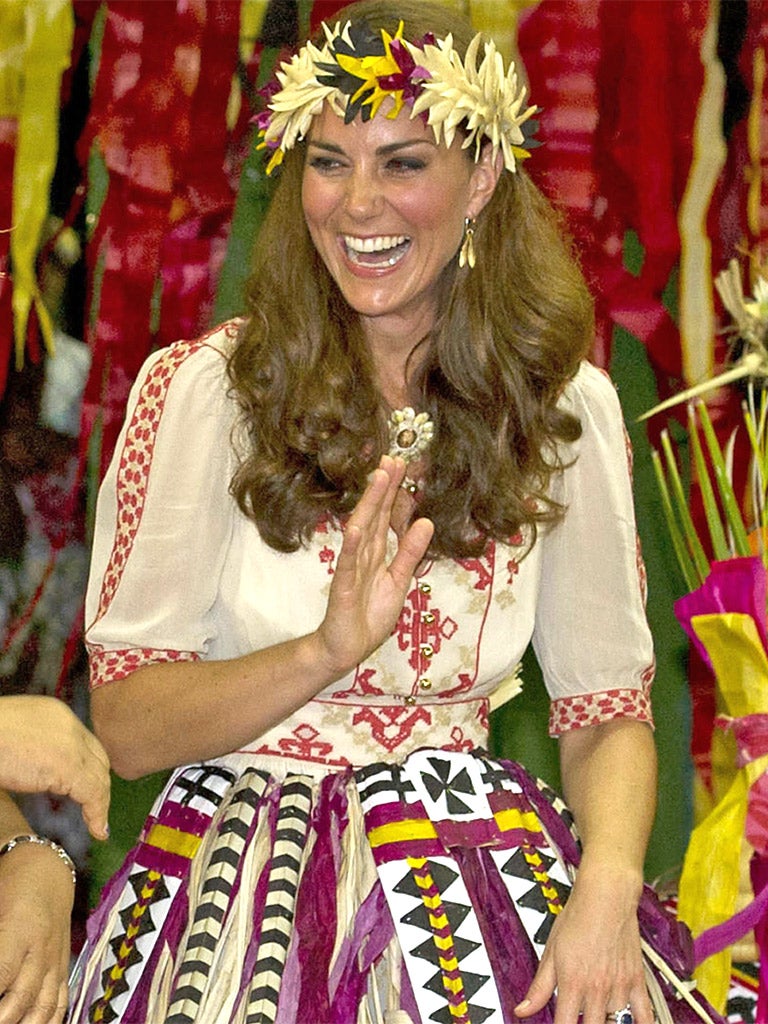William and Kate win legal battle - but lose war to keep topless photos under wraps
France now considering criminal charges against photographer and Closer, with fines up to €225,000

Your support helps us to tell the story
From reproductive rights to climate change to Big Tech, The Independent is on the ground when the story is developing. Whether it's investigating the financials of Elon Musk's pro-Trump PAC or producing our latest documentary, 'The A Word', which shines a light on the American women fighting for reproductive rights, we know how important it is to parse out the facts from the messaging.
At such a critical moment in US history, we need reporters on the ground. Your donation allows us to keep sending journalists to speak to both sides of the story.
The Independent is trusted by Americans across the entire political spectrum. And unlike many other quality news outlets, we choose not to lock Americans out of our reporting and analysis with paywalls. We believe quality journalism should be available to everyone, paid for by those who can afford it.
Your support makes all the difference.A French court yesterday condemned as “brutal” and “particularly intrusive” the topless images of the Duchess of Cambridge published by the French version of Closer magazine last week.
Three judges ordered the magazine to end all print and electronic publication of the images and to hand over digital copies within 24 hours or face thousands of euros in fines. Closer was also ordered to pay €2,000 towards the royal couple's legal costs.
The ruling by the Tribunal de Grande Instance in Nanterre was a moral victory for the Duke and Duchess - known to the court as "Monsieur et Madame Mountbatten-Windsor" - but it will be of limited practical value. The offending edition of the magazine has already sold out. The French ruling does not prevent the unidentified photographer, or the photographer's agency, from peddling the images to magazines in other countries.
More significant, perhaps, was a decision by French state prosecution service yesterday to launch a preliminary investigation into a possible criminal prosecution of the magazine and the photographer for trampling the royal couple's right to privacy. Such a case, rare in France, could flush out the identity of the man or woman who took the long-lens photos of the near-naked Duchess at a chateau (circ on first a) in Provence.
If convicted in a criminal case, the magazine's publishers would face a fine of up to €225,000 and civil damages. The photographer would face a fine of up to €45,000 plus damages. In theory, a court could also impose jail sentences but this is extremely unlikely.
In their separate civil law-suit, the Duke and Duchess were yesterday granted all aspects of the multi-layered injunction that they had asked for in a 90 minute emergency hearing on Monday night.
In a written ruling, the judges said: "These pictures showed the intimacy of a couple partially naked on the terrace of a private home surrounded by a park several hundred metres from a public road. Since they were legitimately able to assume that they were protected from passers-by, they are by nature particularly intrusive."
The couple were, the judges said, "subjected to this brutal display the moment" that Closer appeared on the streets last Friday.
The court ordered Closer to remove the images from its web-site and other electronic media and not to re-print last Friday's edition. The Duke and Duchess's lawyer, Aurelien(acute on first e) Hammelle, had not asked for the magazine to be withdrawn or pulped since it was "manifestly sold out".
The judges also ordered Closer's publishers to hand over all materials containing the images in digital form. The magazine's lawyer, Delphine Pando, said such a surrender would be pointless since the originals and the rights were owned by the photographer or the photographer's agency.
The civil case brought by the royal couple will probably go no further. Lawyers for the Duke and Duchess are expected to concentrate instead on winning a conviction and damages in the criminal action.
Although French privacy laws are theoretically tough, aggrieved French celebrities tend to sue in the civil courts and settle for damages of a few thousand euros. The Duke and Duchess have chosen the much rarer course of pushing for a criminal investigation.
This has the twin, potential advantages of revealing the name of the photographer and imposing much greater penalties on the magazine. All depends, however, on how seriously the French state prosecution service and criminal courts decide to take the case.
The fact that the Duke and Duchess are "royals" rather than mere "celebs" may not cut much ice in Republican France. The civil action was heard not in the name of the Duke and Duchess of Cambridge but on behalf of "William Arthur Philip Louis Mountbatten-Windsor and Catherine Elizabeth Middleton."
Join our commenting forum
Join thought-provoking conversations, follow other Independent readers and see their replies
Comments